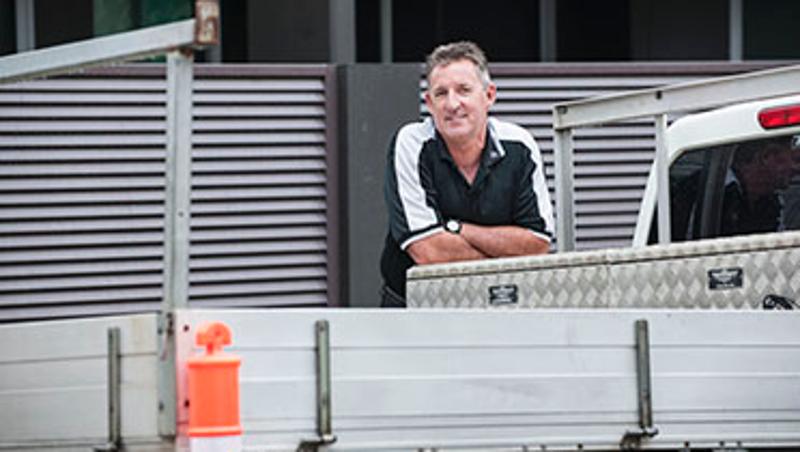
More workers die in motor vehicles than any other workplace incident, a statistic that transport safety experts are hoping to address at an international conference being hosted by QUT's Centre for Accident Research & Road Safety - Queensland (CARRS-Q).
The Occupational Safety in Transport Conference (OSIT) to be held on the Gold Coast on September 18 and 19 brings together experts from all facets of transport safety including roads, rail, fleets, and mining to improve workplace health and safety.
CARRS-Q research fellow Darren Wishart said the aim of the conference was to save lives by working together to come up with innovative solutions to address the transport and safety challenges faced in the modern workplace.
"Over the last decade, 46 per cent of Australian workplace fatalities have been vehicle-related, 12 per cent caused by being hit with a moving object, and 11 per cent from falling from a height. This makes the vehicle the primary mechanism of workplace fatalities," he said.
Mr Wishart said in the modern work environment, the vehicle was an extension of the office and under legislation was considered a workplace, therefore all organisations and employees were obliged to ensure a safe workplace.
"Work-related road safety is a complex issue comprising many components, therefore to address it any initiatives need to be inclusive of the driver, employers, organisations, family members and the environment," he said.
WHAT: 2014 Occupational Safety in Transport Conference
WHEN: September 18-19
WHERE: Crowne Plaza Surfers Paradise
MORE INFO: http://ositconference.com/
The four keynote speakers to open each session are:
• Dr Stephanie Pratt, Centre for Motor Vehicle Safety, US National Institute for Occupational Safety and Health, calls for more cohesion between the employer and employees to ensure a high level of work-related road safety is practised.
• Professor Lee Di Milia, Central Queensland University, highlights the impact of driving after a night shift among the DIDO workforce revealing that those who reported "fighting sleep" when driving were 5.3 times more likely to cross a lane.
• Colonel Simon Tuckerman, Australian Defence Force, provides strategies used by the ADF to manage their fleet, and how these can be utilised in the common workplace.
• Professsor Ann Williamson, Transport and Road Safety Research, University New South Wales, will elaborate on the effects of fatigue and the role of human error in injury and safety, particularly for those working in the long distance road transport sector.
Other speakers at the conference include:
• Alan Reed, Toowoomba Regional Council: Snatch straps and enforced undertakings
• Lori Mooren, Transport and Road Safety Research (TARS), UNSW: Why some truck drivers still don't use seatbelts
• Mingxia Huang, Nagoya Institute of Technology: The impact of countdown-type traffic signals on road traffic safety including truck drivers
• John Doherty, Smart Start Interlocks: The use of alcohol interlocks to improve safety in the transport industry
• Christopher L'Ecluse, Navman Wireless: How to keep your drivers safe with In-Vehicle Monitoring Systems
For the full program, here
Media contact:
Sandra Hutchinson, QUT Media (Tue, Wed, Fri), 07 3138 9449 or media@qut.edu.au
After hours, Rose Trapnell, 0407 585 901


